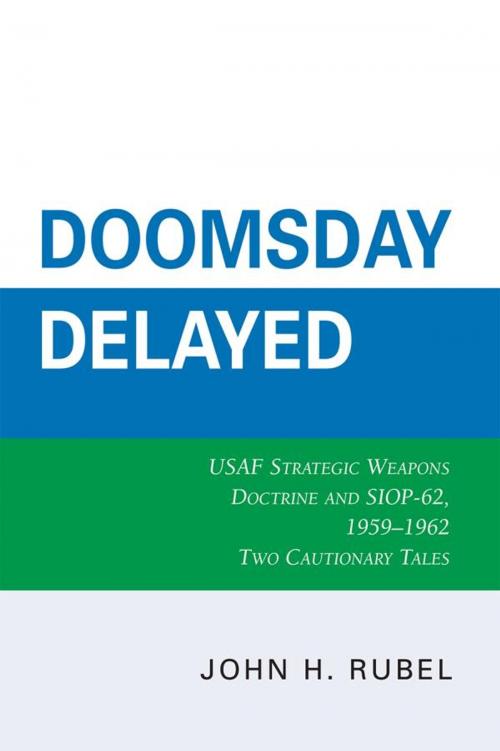Doomsday Delayed
USAF Strategic Weapons Doctrine and SIOP-62, 1959-1962
Nonfiction, History, Military| Author: | John H. Rubel | ISBN: | 9781461626374 |
| Publisher: | Hamilton Books | Publication: | June 10, 2008 |
| Imprint: | Hamilton Books | Language: | English |
| Author: | John H. Rubel |
| ISBN: | 9781461626374 |
| Publisher: | Hamilton Books |
| Publication: | June 10, 2008 |
| Imprint: | Hamilton Books |
| Language: | English |
In the wake of the Soviet launching of Sputnik I, John H. Rubel became one of six Assistant Directors of Research and Engineering for the Department of Defense in the recently re-organized Pentagon. It was here that Rubel would witness two of the most significant events of his career. In Doomsday Delayed, Rubel recounts the initial disclosure to selected civilian defense officials of launch arrangements designed into the Minuteman missile system and the Single Integrated Operational Plan (SIOP-62), both deliberately designed to kill and maim innocent civilians in the USSR and China. These launch system designs invited the possibility of an unauthorized or accidental mass launch of tens or even hundreds of nuclear-tipped missiles with little or no warning, effectively removing operational control from the President, military commander, or civilian defense official in the event of nuclear confrontation.
Rubel's account illustrates how potentially disastrous gaps came to exist between national military policies and the detailed design and development of major intercontinental ballistic missile systems-important lessons to be learned in this time of rogue nations and nuclear proliferation.
In the wake of the Soviet launching of Sputnik I, John H. Rubel became one of six Assistant Directors of Research and Engineering for the Department of Defense in the recently re-organized Pentagon. It was here that Rubel would witness two of the most significant events of his career. In Doomsday Delayed, Rubel recounts the initial disclosure to selected civilian defense officials of launch arrangements designed into the Minuteman missile system and the Single Integrated Operational Plan (SIOP-62), both deliberately designed to kill and maim innocent civilians in the USSR and China. These launch system designs invited the possibility of an unauthorized or accidental mass launch of tens or even hundreds of nuclear-tipped missiles with little or no warning, effectively removing operational control from the President, military commander, or civilian defense official in the event of nuclear confrontation.
Rubel's account illustrates how potentially disastrous gaps came to exist between national military policies and the detailed design and development of major intercontinental ballistic missile systems-important lessons to be learned in this time of rogue nations and nuclear proliferation.















